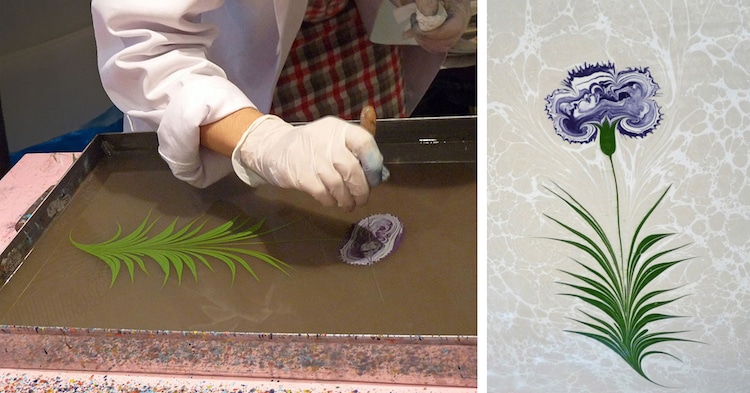
Today, many artists strive to find inventive new ways to produce paintings. Whether employing their fingers or tiny food, they creatively prove that the practice is so much more than bristled brushes and conventional canvases. While this may seem like a novel approach to the practice, Ebru painting—a form of art that utilizes water, dye, and an awl—has showcased this interest in experimentation for centuries.
What is Ebru painting?
Ebru painting is a distinctive genre of aqueous art used to produce mesmerizing works. Particularly popular in Turkey and Central Asia, Ebru paintings are produced using dyes, a water-based solution, and a set of unique tools. Like printmaking, Ebru works of art are created by transferring designs, patterns, and motifs onto sheets of paper, fabric, and other canvases.
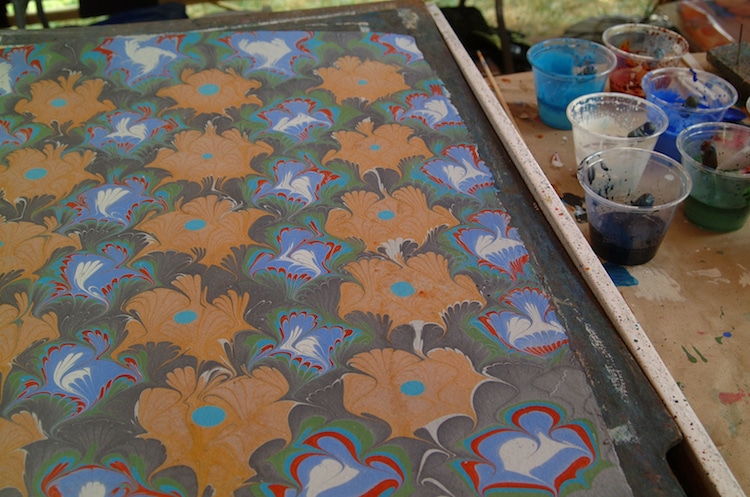
Photo: Smithsonian Institution
Due to the streaked and swirled aesthetic of the finished product, the Ebru art form is also known as “paper marbling.”
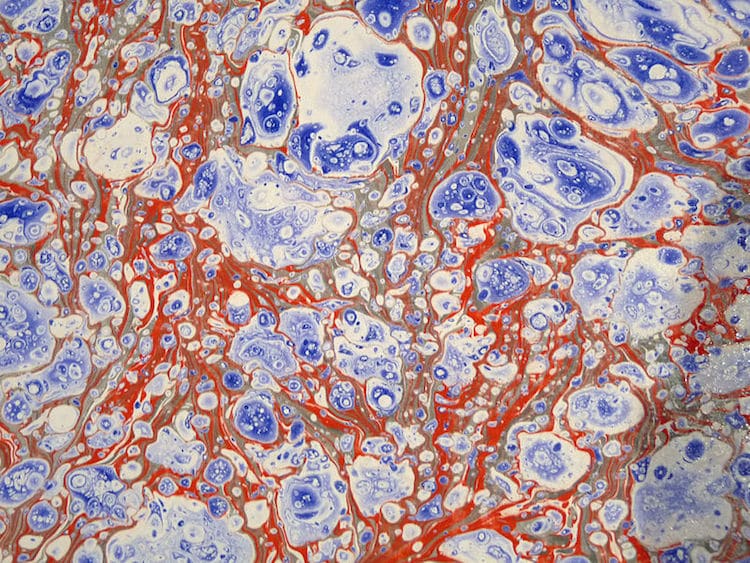
Photo: By Ji-Elle (Own work) [CC BY-SA 3.0], via Wikimedia Commons
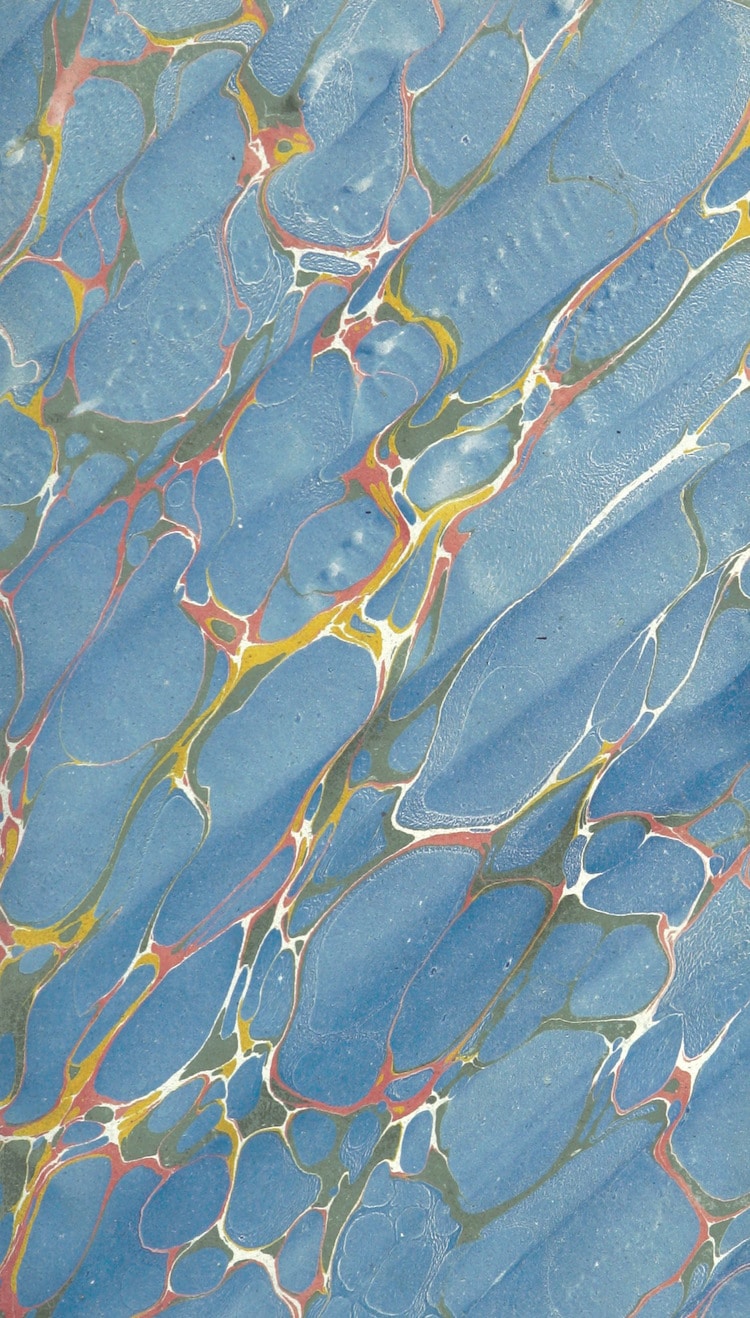
Photo: The British Library
Process
To create an Ebru painting, the artist employs a unique process unlike that of any other art form.
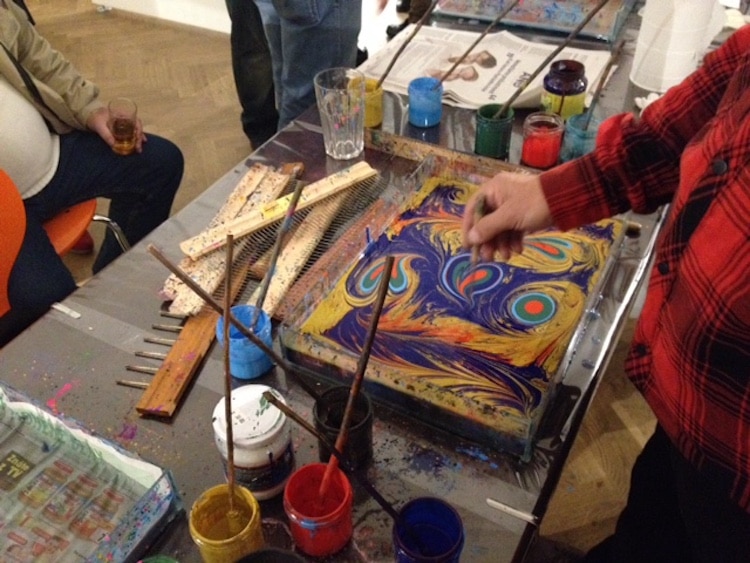
Photo: By CeskoTurecko (Own work) [CC BY-SA 4.0], via Wikimedia Commons
First, the artist mixes water with pigment and kitre, a natural gum, to produce a dye.
The dye is then added to the surface of the size, a cellulose solution, and an awl is used to manipulate the colors into designs and patterns.
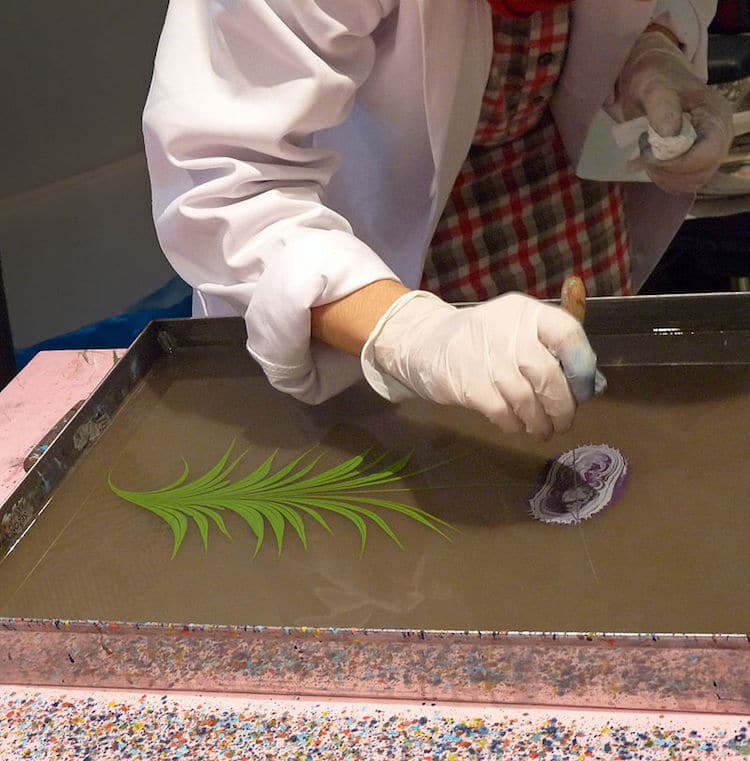
Photo: By Ji-Elle (Own work) [CC BY-SA 3.0], via Wikimedia Commons
Once the artist has completed this one-of-a-kind “painting” process, a sheet of paper is carefully placed on top of the size in order to transfer the image.
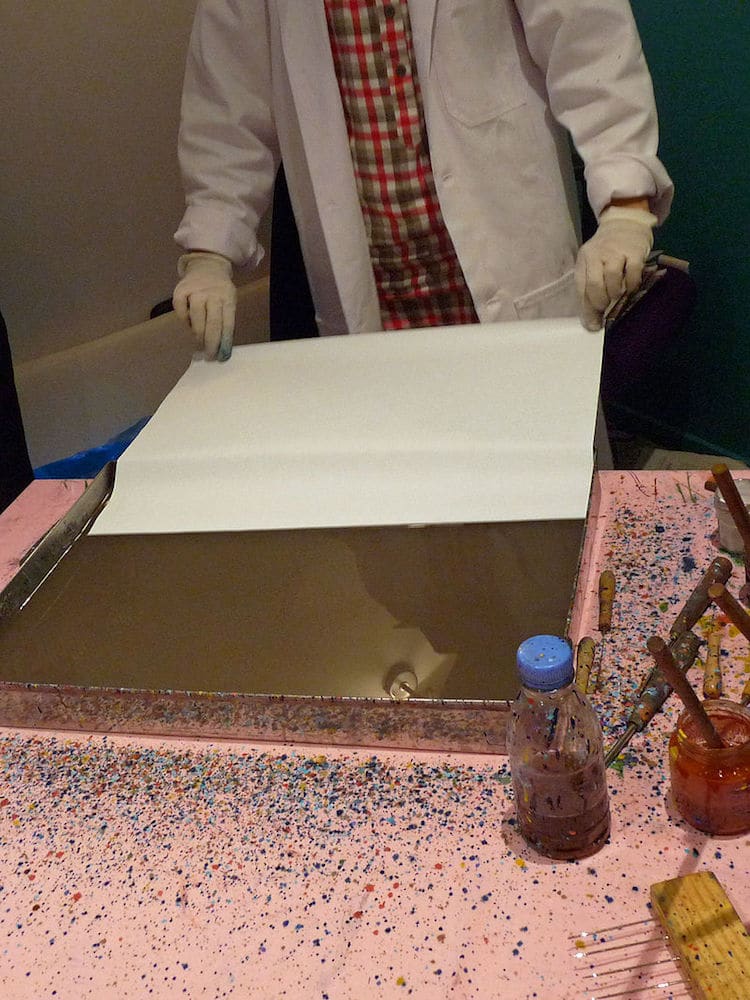
Photo: By Ji-Elle (Own work) [CC BY-SA 3.0], via Wikimedia Commons
After the sheet is removed from the liquid, it is left to dry.
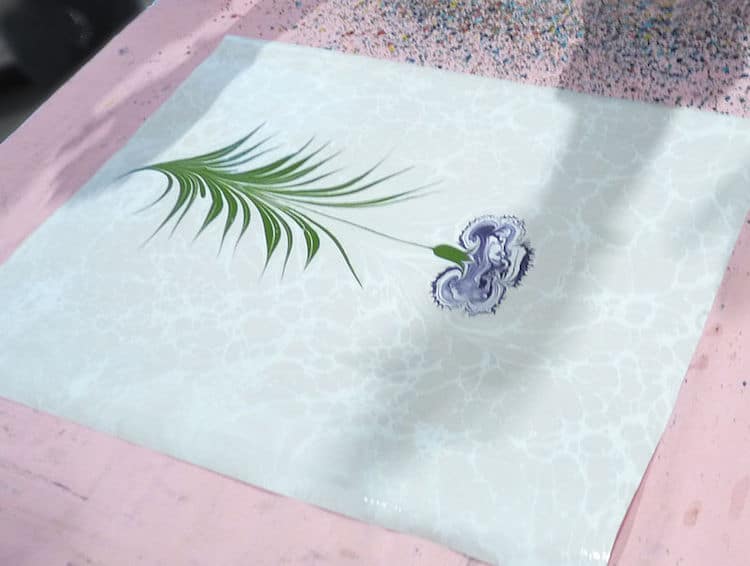
Photo: By Ji-Elle (Own work) [CC BY-SA 3.0], via Wikimedia Commons
And voila! A marbled masterpiece is produced.
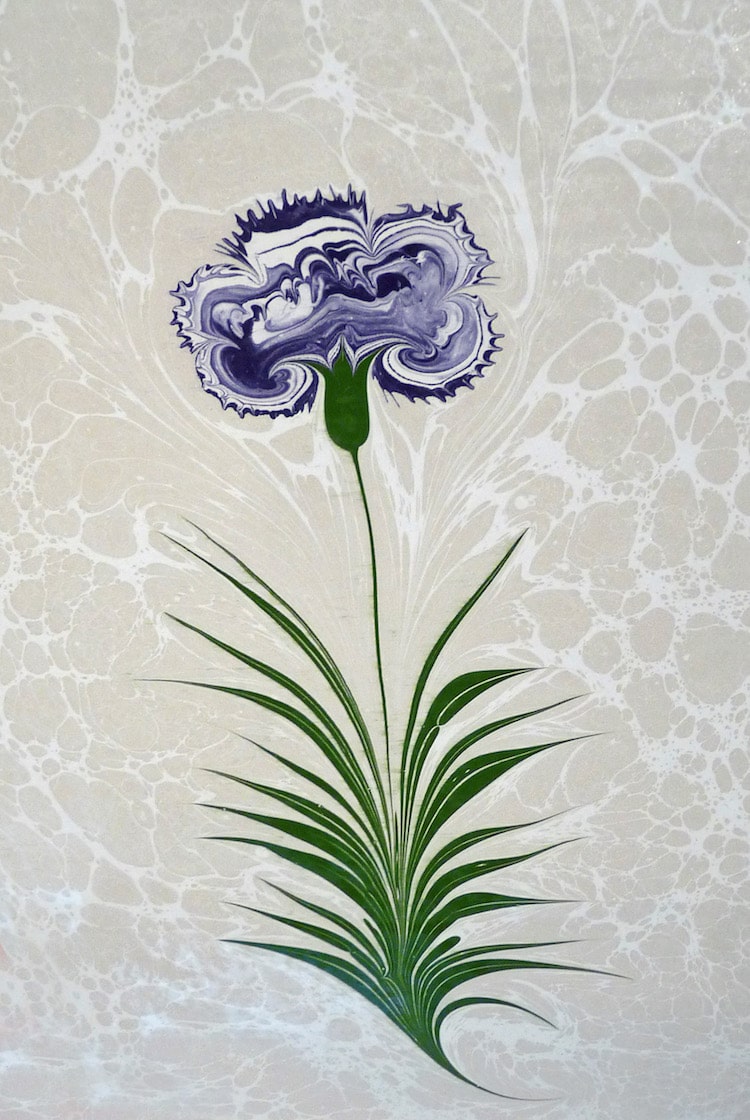
Photo: By Ji-Elle (Own work) [CC BY-SA 3.0], via Wikimedia Commons
